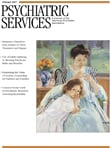The book Strategies for Building Multicultural Competence in Mental Health and Educational Settings evolved from the "Guidelines on Multicultural Education, Training, Research, Practice, and Organizational Change for Psychologists" approved by the American Psychological Association's Council of Representatives in 2002. The original idea on the part of the editors of this book is to develop awareness and action around the enacted guidelines and to call attention to the psychological community in this respect. The objective of this volume is also to help the field of psychology to move from a monocultural model to a multicultural one. To achieve this task, a group of highly respected professionals, most of whom are psychologists, joined together as authors of the chapters of this book.
Influential in the conceptualization of this text was Robert Guthrie's book Even the Rat Was White, which depicts the biases of traditional psychology toward Western European cultures that are not applicable to an increasingly diverse population and in so doing depicts cultural oppression. Taking this concept into consideration, this book is a successful one. It opens the door for a solid understanding of what the United States currently is: a pluralistic, multiethnic, and multicultural society.
In essence, this text offers a foundation for culturally sensitive assessment, counseling, and therapy, as well as the possibility of organizational change based on this type of conceptual framework. The idea of integrating indigenous methods into traditional psychological practice is both novel and practical. Within organizational change, institutional racism can be addressed and appropriately resolved. The content of this volume is excellent for educational purposes. Moreover, the content areas of the different chapters can be a stimulus for further research and investigational efforts within the context of multicultural competence and treatment interventions.
The first part of the book offers a chapter written by the book's editors that describes the American Psychological Association's adopted multicultural guidelines. Part II embraces the application of the guidelines in clinical practice and comprises six chapters. These chapters address key topics, such as culturally sensitive assessment and diagnosis, multicultural approaches to individual and group counseling, multicultural interventions with couples and families, career counseling with people of color, independent practice settings that take multicultural models into consideration, and integration of multicultural competence within indigenous healing practices.
Part III consists of applying the guidelines to educational and organizational settings, such as academic mental health training settings, clinic and hospital settings, college counseling centers, and elementary school settings. Chapters focus also on issues that may arise during clinical supervision as well as on consultation and organizational development.
Part IV discusses research within the domain of cultural sensitivity. These three chapters address research pitfalls of the past and how to move toward the future, the practical applications of conducting research with ethnic minority populations, and the importance of qualitative research within the context of cultural sensitivity.
Part V has one chapter that offers concluding thoughts and future directions for increased use of multicultural competence in mental health and educational settings and its implications for social justice.
I very much enjoyed reading this book, and despite its focus on psychologists, I appreciate its relevance and significance in the mental health field at large.

